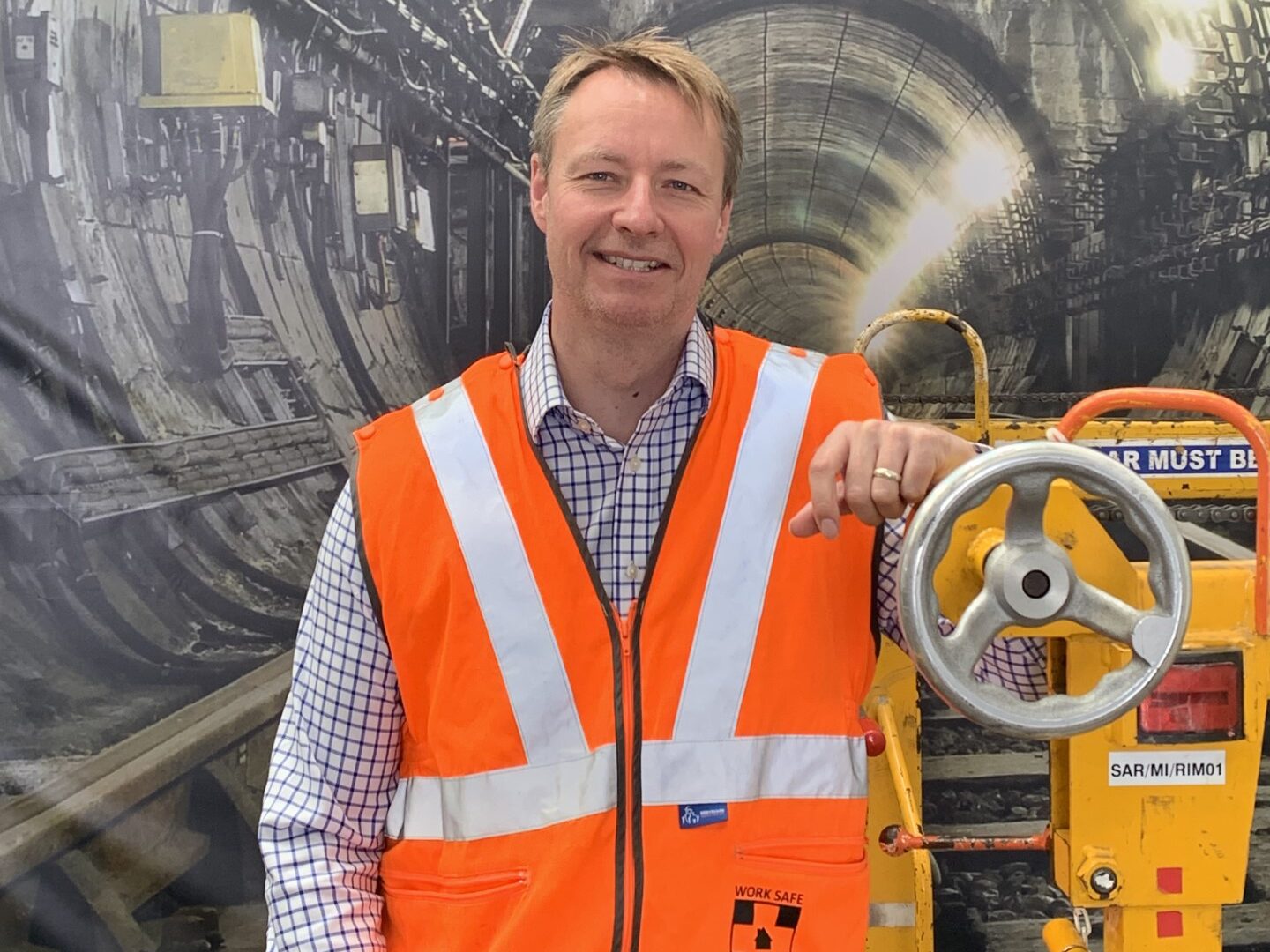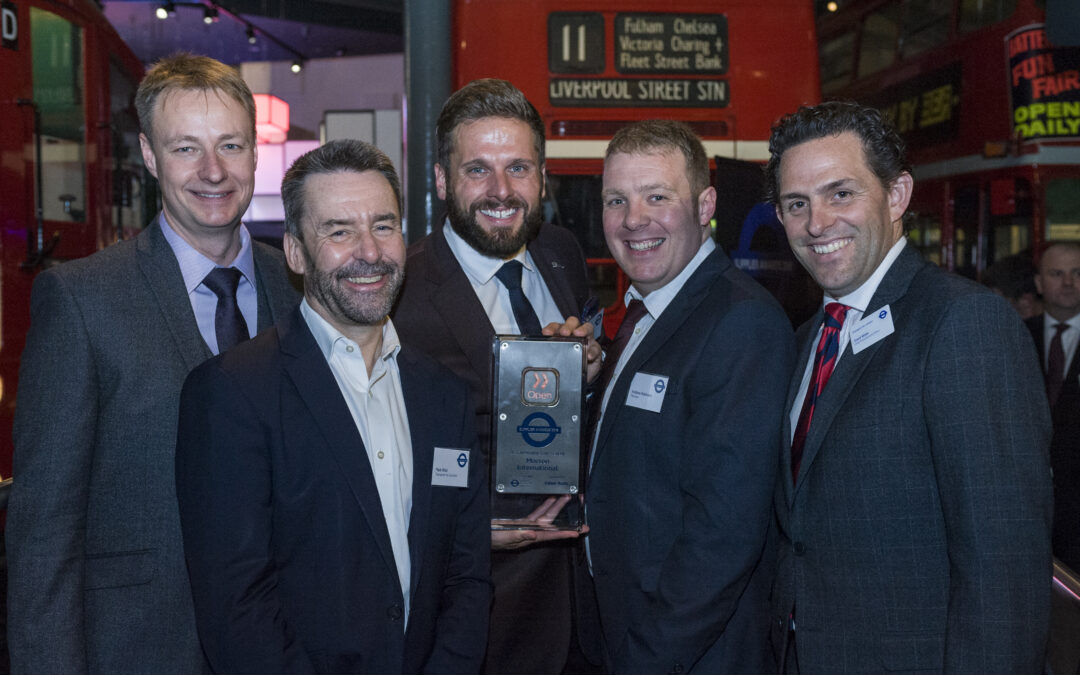North London Partnership Consortium (NLPC) Ltd is a not-for-profit organisation committed to the regeneration and renewal of communities by unlocking the potential of its people to grow and prosper. Since 2021 the NLPC, rail training provider Morson Training, and recruiter Morson Talent have collaborated on a training and employment programme that sees individuals facing unemployment and other socio-economic issues, given access to training and job opportunities within the UK rail infrastructure.
Following our recent chat with John Egbo, director of the North London Partnership Consortium, Graham Timbers, Operation Director at Morson Training’s Canning Town site speaks with us about the career pathways in rail that are available after completing the NLPC training programme. He shares a recent success story from the programme and reveals how Morson supports delegates once they’ve completed their rail training..
How does Morson Training benefit from the partnership with the NLPC and why is it crucial for Morson to be involved in the programme?
The biggest benefit is that we are engaging with people who want to work and who are suitable for the type of work that we’ve got to offer them. Our recruitment process, therefore, becomes more streamlined and efficient. Typically, if you have 60 applicants, maybe 15 or 20 of them would be suitable or interested to take it on to the next stage. With the NLPC individuals are all pre-screened and made fully aware of what working on track involves.
When the delegates reach us, they’re motivated and interested in the role, the projects, and the opportunity. We are looking for talent that we can train, that we can mould into reliable, safety-conscious track workers. For us and for our clients, this is very beneficial. The other benefit is that we’re working directly within the local community. The NLPC enables us to recruit directly from the local area, giving training and employment opportunities in socio-economic deprived communities.
It’s important that we have an eye on where investment from TfL is going. We’re committed to ensuring that some spending stays in the local community by developing local talent, which is where it’s needed.
How does the NLPC partner with Morson Training and Morson Talent to provide sustainable routes to employment in rail?
The NLPC’s relationship with Morson started around two years ago and since then we’ve collaboratively developed an effective training-to-employment programme. Simply, the NLPC has over the years developed a holistic framework for employment engagement. At the core of the NLPC’s work with Morson is local knowledge and networks based on a proven track record established over the past 20 years.
How can the delegates climb the rail ladder once passing the NLPC/Morson training programme?
Although a delegate might start with us as a track worker, they could quite easily develop to become a PWT (Protecting Workers on Track) or become a track handback. We have examples of people completing the programme and developing with Morson or other organisations such as Rolls Royce or Transport for London directly, working in depots on trains. We encourage individuals to be ambitious as where a delegate could end up is unlimited. We are proud to play a key part with our partners, in giving them an opportunity to start a fulfilling career, with numerous development opportunities.
How does Morson help a delegate find a job once they’ve completed their training?
At Morson, we’ve got numerous open positions with Transport for London. Therefore, once an individual has completed their training we have jobs available to get them into employment straight away. .
Training and opportunities with Morson don’t end there. Because we’ve developed our own assessors we are able to take track operatives and train them into Protecting Workers on Track and Track Handback roles, we don’t just simply put them out to work in entry-level jobs.
We’ve got PWT’s on-site that help and pass on their experience down to the track operatives. Therefore, track operatives can develop quickly. When we win more work, we tend to need a higher set of skills and we train the track operatives to the next level up because they’re qualified, motivated, and highly safety conscious.
We enable people to get a good couple of years’ of experience on track before they start to progress. For us, it’s about making them a well-rounded track operative. You could have two years of experience as a track operative, but you could be doing the same work every night.
That doesn’t necessarily make you very well-rounded, whereas, if we can move you around from gang to gang and we can get you a variety of work, at the end of those two years you’ll have a range of experience. Individuals with this level of experience and expertise are much more valuable than somebody who’s just sat carrying sleepers up and down the track all night long.
Once delegates have done basic training and we’ve got them on site, we employ a blue hat system. New starters on a site will be marked with a blue hat instead of a white hat. This enables us to look at their logbooks and track their progress. If a delegate has been digging wet beds and that’s all they’ve ever done, that’s not enough experience and we know we need to move them on to something else. It’s the individual’s responsibility to get them filled in, but it’s also the PWT’s that sign them off to say what work different workers have done. Again, it’s about developing those individuals as quickly and safely as possible.
Can you explain more about the pathways in rail that are available?
They are pretty much endless, so I can’t cover them all, but for example, we would start people as what we would call a plate layer. Very quickly, they would become a skilled plate layer and they’ll probably do that as part of the training. That’s where we then need to get them a couple of years of experience. The next step after that would be a PWT and then a track handback. A PWT is the person who technically measures the track and makes sure it’s fit and safe for trains to run, it’s the ultimate responsibility of the track.
Once you start to go out to work during engineering hours, you’ll get to see all the other activities that go on during a typical night shift. This ranges from people putting up posters, doing tiling, plumbing, signal works, power works – there’s a whole myriad of activities going on. Once you’re on track and working, you are in a much better position to be able to pursue careers in those different sectors as well.
What success stories have come from delegates completing the programme?
The primary one is Denzil Bell, who’s ended up being a trainer with us at Canning Town. He’s a phenomenal individual. You can very quickly pick up on people that are going places, and Denzel is one of them, he is a very switched-on guy. He’s progressed very quickly because of his great attitude and commitment.
He’s done the track training course where he’s gained the necessary skills to be useful on track. He spent his time on track as a track operative, and because of his aptitude and attitude, we trained him to be a PWT.
Unfortunately, there was a period of time during COVID when we couldn’t offer him work. Denzel being the driven person he is, went and got a job for another supplier into TfL. I think this actually did him good because it made him appreciate the way that we operate at Morson compared to other suppliers. He then chose to come back to us, which I’m quite proud of.
Since he’s been back with us, Sunil Madhavan, Regional Training Manager TfL at Morson Training picked up on his skill set and has started to use Denzil for delivering some of the training courses as well.
How would people go about joining the NLPC Morson training programme if they’re interested?
If you go to the NLPC website, there will be a link for you to apply and you will need to contact John Egbo. We are often in conversations with John and can communicate when we have a requirement to recruit.
Our approach with the NPLC is strategic, we keep close to our clients and understand when there are upcoming work opportunities. We then try to run the courses when we know there will be jobs at the end of them for the delegates.
Why would you encourage people to join the NLPC/Morson training programme?
The programme is unique because of the soft skills that come along with it. It’s very easy for somebody to get the mandatory training to come and work on the track, but there aren’t many organisations that will go that extra step and talk to individuals about people management skills and mental health awareness.
It just goes to show that NLPC and Morson really care about the workers both personally and professionally.
Our approach is to explain the courses all the way through. It’s important delegates understand the reason behind why they’re doing something, not just instructing them how to do it. We ensure that there is a clear understanding of why different procedures and processes need to be followed and what the consequences could be if they weren’t. This approach is all aimed at safety. If you understand the potential for things to go wrong and what could happen to you if they do go wrong, then you’re much more likely to follow the rules and procedures that are presented to you. That’s the key reason why you should start your career through the NLPC and Morson Training, we give people a good grounding.
It makes a huge difference to me if I’ve got workers that we’re deploying that are happy, content and understand the role and their responsibilities. Making that investment up front for these people starting their careers enables them to take these positive behaviours throughout the rest of their careers as well.
To find out more about the training and employment programme that the NLPC and Morson and to join the programme, click here.


